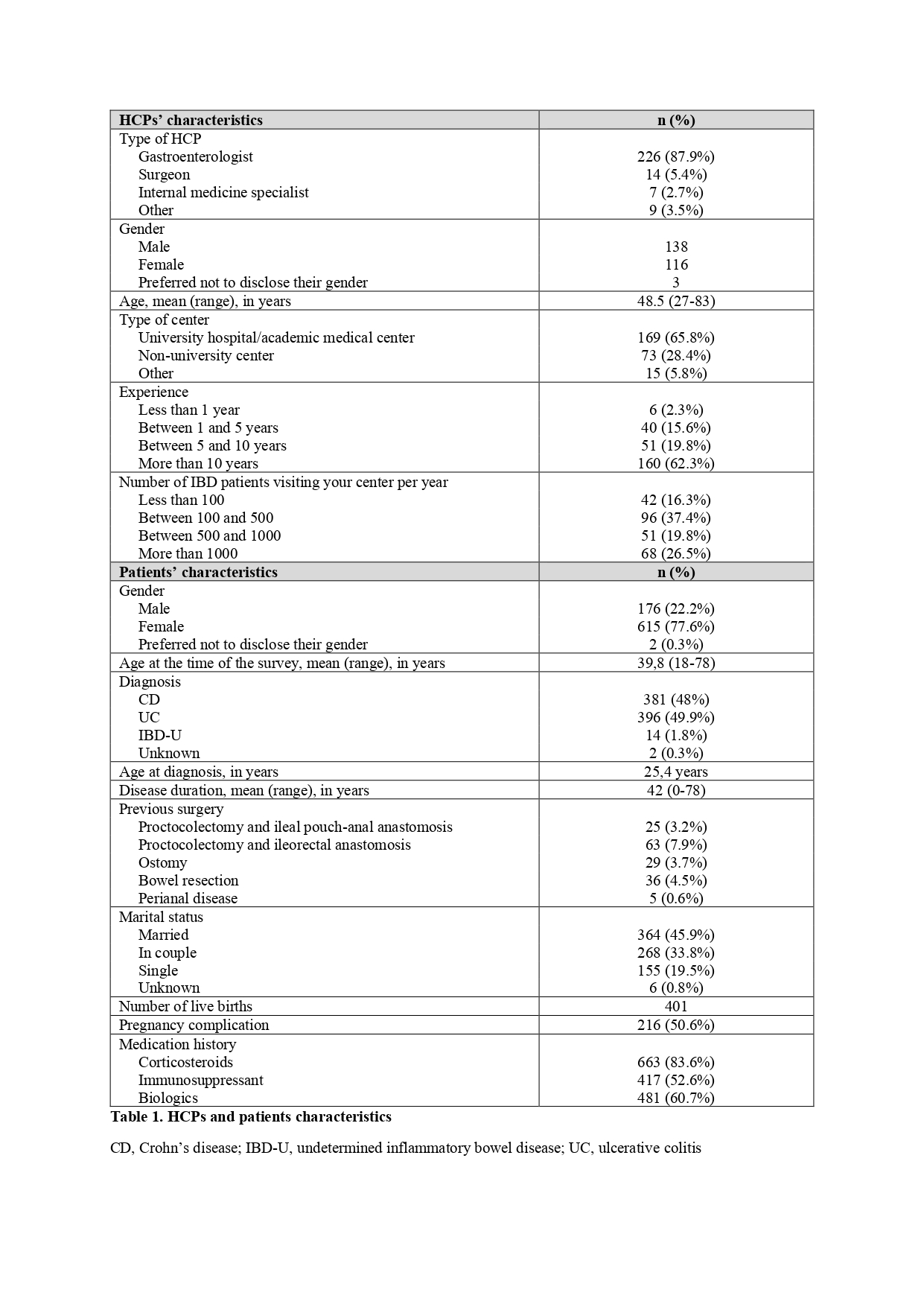P619 Inflammatory bowel disease meets fertility: a physicians and patients survey
Vieujean, S.(1)*;De Vos, M.(2);D’Amico, F.(3,4);Paridaens, K.(5);Daftary, G.(6);Peyrin-Biroulet, L.(7,8);Danese, S.(3);
(1)CHU Liège- Sart Tilman, Department of Gastroenterology, Liège, Belgium;(2)UZ Brussel, Centre for Reproductive Medicine, Brussels, Belgium;(3)IRCCS San Raffaele Hospital and Vita-Salute San Raffaele University, Department of Gastroenterology and Endoscopy, Milan, Italy;(4)Humanitas University- Pieve Emanuele, Department of Biomedical Sciences, Milan, Italy;(5)Ferring International Center S.A., Ferring International Center S.A., Saint-Prex, Switzerland;(6)Ferring Pharmaceuticals A/S, International PharmaScience Center, Kastrup, Denmark;(7)University of Lorraine- CHRU-Nancy, Department of Gastroenterology, Nancy, France;(8)University of Lorraine, Inserm- NGERE, Nancy, France;
Background
Inflammatory bowel diseases (IBD) affect patients during their childbearing years. Literature evidence is scarce regarding the level of knowledge among health care professionals (HCPs) and patients out the impact of IBD on fertility. The aim of this survey was to investigate HCPs' and patients' knowledge on fertility, pregnancy, and sexual function, to evaluate how HCPs approach this topic and to report patients’ reproductive outcomes.
Methods
Subjects were invited to anonymously complete an online questionnaire collecting data on demographics, patients' disease characteristics, Crohn's and colitis pregnancy-specific disease-related knowledge (CCPKnow), family planning, reason of childlessness, pregnancy outcomes, need for assisted reproductive technology, impact on sexual function, and availability of patients’ information regarding IBD and pregnancy.
Results
A total of 257 HCPs from 40 countries and 793 patients (615 females, 176 males and 2 who preferred not to disclose their gender; 396 (50%) with ulcerative colitis, 381 (48%) with Crohn’s disease, 14 (1.8%) with undetermined IBD) from 4 countries completed the survey. The characteristics of participants are listed in Table 1. In total, 98.4% of HCPs had good or very good pregnancy-specific knowledge according to CCPKnow score, compared to only 29.3% of patients. Of the women surveyed, 56.3% had no children (14.1% due to a voluntary choice). A total of 427 pregnancies and 401 live births were reported in 266 women. Twenty-four pregnancies (5.6%) in 22 women required assisted reproductive technologies (ART). There were no more complications in pregnancies resulting from ART compared with spontaneous conception (5/24; 20.8% vs 211/401; 52.6%). Three quarters of IBD patients (75.6%) had breastfed. An impaired sexual function was found in one-fifth (21.9%) of men with IBD, while two-thirds (66.1%) of the women reported sexual function impairment. Surprisingly, 63% of patients reported not having received any information about IBD and pregnancy, and only 10% of patients had received information from their IBD specialist. In addition, 42.1% and 36% of HCPs had already referred a patients to a medically assisted reproduction centre to receive general information about their reproductive health and about options of fertility preservation (e.g., cryopreservation), respectively.
Conclusion
IBD patients have a poor knowledge about the impact of IBD on fertility and pregnancy and HCPs does not sufficiently inform their patients. More information on these topics is needed for IBD patients.


